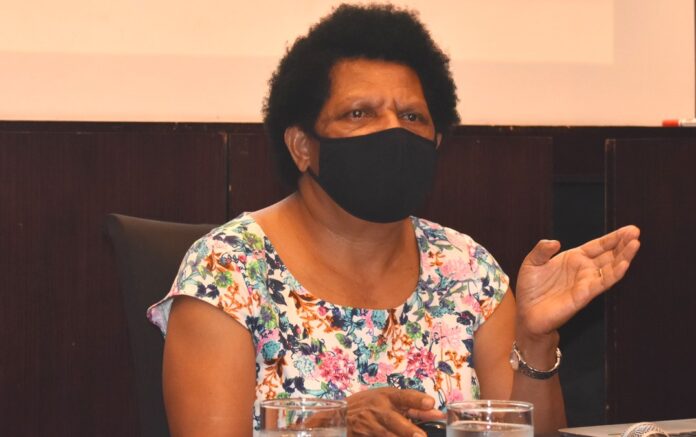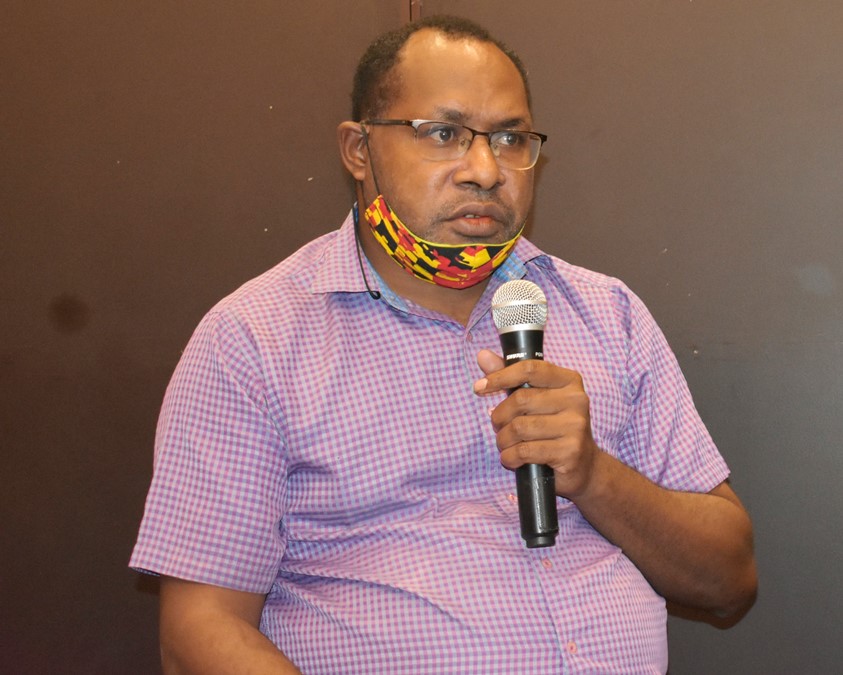
WITH the Papua New Guinea’s Small to Medium Enterprises (SMEs) Policy target of reaching 500,000 SMEs by 2030, a recent PNG NRI study has shown that there are still challenges faced by enterprises involved in the informal economic activities that have the potential to become SMEs if supported through appropriate policy interventions to grow and become sustainable.
The author and leading researcher of the report titled “Innovation in the informal economy: Lessons from case studies in selected areas of three provinces in Papua New Guinea” PNG NRI Senior Research fellow Dr. Elizabeth Kopel, during her presentation organised by PNG NRI yesterday in Port Moresby has highlighted some of the challenges faced when trying to set-up informal business as well as challenges faced when operating in an informal business.

“Growth and expansion of innovative enterprises is constrained by financial, technical and resources challenges.
“Individuals and enterprises driving innovation need to be supported with appropriate assistance to enable them to grow and make the transition in order to meet PNG’s SME Policy target of reaching 500,000 SMEs by 2030,” says Dr Kopel.
She described the PNG’s informal economic as huge, however has a narrow base and lacks diversity and innovation, limiting its potential to grow.
The report has identified that though most ‘survival’ entrepreneurs are likely to remain long-term in the informal economy, she said they also need to be enabled to operate at higher levels of productivity and income to sustain and improve their livelihoods.
The report highlighted that State intervention must focus on developing strategies that can assist enterprises which demonstrate promising signs of innovation and expansion.
“Effective implementation would require well-crafted implementation strategy that would provide a road map to guide projects and activities to achieve the policy objectives.”
However, given the limitation before reaching the PNG SME Policy target in 2030, PNG SME policy Manager Barry Sausia noted that the focus of SME Policy now is on the strategies and intervention as a way forward.

Manager Policy Governance S.M.E.C Barry Sausia making his comments during the presentation of the report in Port Moresby.
He added that all that can be done now is to switch the narrative and to change the approach to further engage and improve the informal sector to meet the SME Policy target and that can be done through proper strategic awareness and educational and financial training.
The report also recommend that there is a need for research to identify and analyze innovations in non-agricultural, manufacturing and downstream processing informal economy activities as well as specific informal enterprise that have potential for export like trading of artifacts, spices and honey.
